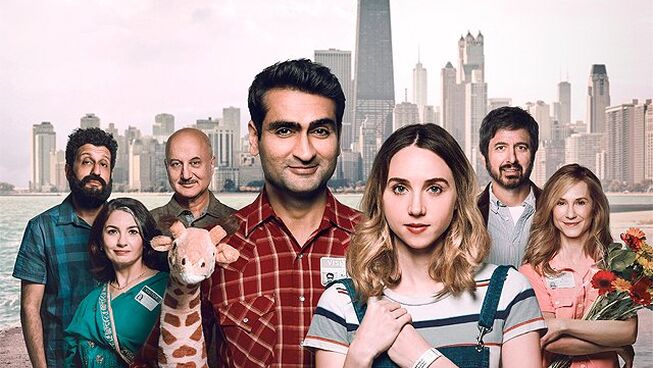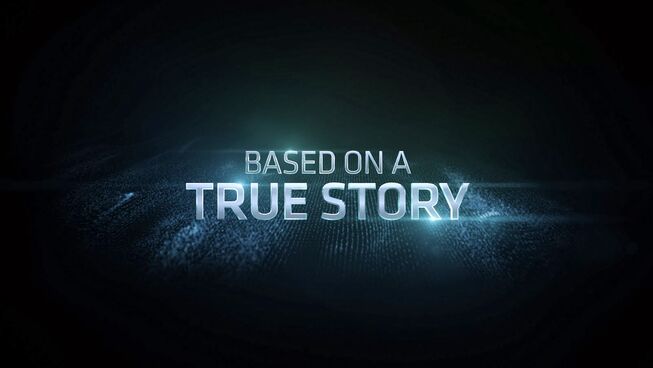
4 out of 5 stars
“Can we have an awkward hug before we part forever?”- Kumail
Rarely do we get to see a culture clash of worldviews that is both comedic and endearing. The Big Sick is the real life account of the relationship between Kumail Nanjiani and Emily Gordon. Showing how the American dream includes the clashes of tradition and family that challenge each generation of immigrants. Specifically Kumail’s Pakistani background and how his heritage plays against his pursuit of being whatever he chooses to be in life and who he chooses to love.
What makes this journey even more compelling is that the back drop of the story is played against the comedy clubs and hospitals of Chicago. As Kumail pursues his dream as a stand-up comedian, he is heckled by the charming Emily (Zoe Kazan) which eventually leads to a budding relationship between the two of them. Despite their evident attraction to one another, Kumail must keep his love for Emily a secret from his Pakistani family. Within their culture of arranged marriages and its Muslim heritage, he is expected to marry a good woman from their country. As their family backgrounds become an evident divide within their relationship, they decide to part ways despite the relational pain they both experience. Then one night Emily ends up in the hospital with an unexplained infection. Kumail is called to help her during her stay and then is put into the precarious position of approving the doctors plan to put her into a medically induced coma. The young comedian must contact and comfort her parents, help them through the process with their daughter and determine what his true feelings are for Emily. All this leads to a purely unique progression of young love that touches on emotions unlike any other film this year.
This romantic comedy proves that real life provides some of the most compelling and extraordinary narratives. The love affair between Kumail and Emily delivers a statement on the challenges of pursuing a dream, the difficulties of each immigrant generation in a foreign land and the continual speed humps that occur in every relationship. The balance between all of these elements is managed well between the autobiographical writing of the couple and the direction of Michael Showalter (Hello, My Name is Doris).
The comedic components do not merely distract from the dramatic tension, but instead add to the tension of the family clashes and show that comedy cannot always sooth the wounds of life. What adds to this story's beauty is the parental support of Holly Hunter, Ray Romano, Anupam Kher and Zenobia Shroff. These acting veterans add an invigorating and comical awkwardness that depicts a deep and real familial love. The whole experience is reminiscent of My Big Fat Greek Wedding, but with a rawness to the script that never delves into the saccharine sweetness of many rom-coms. It delivers the passion and the ugliness that is part and parcel to every struggle to find true love.
The reality of this budding love affair is that it happens within a world where sex precedes the development of the relationship and the coarseness of the language leaves it accessible to mature audience only. This inhibits the film from becoming a fantastic depiction for a new generation of what happens when a love is dropped into the cultural mix of a modern world. Despite the mature content, it is a film that should be considered for couples seeking a change to the typical romantic comedy. The emotional range of the characters and the depth of the performances is arresting and worth enduring the rougher content for the sake of an entertaining experience at the cinema.
REEL DIALOGUE: Language?
This Reel Dialogue segment could be misconstrued as prudish, but the point is to look more at the intent of language as opposed to the actual words spoken.
'Let no corrupting talk come out of your mouths, but only such as is good for building up, as fits the occasion, that it may give grace to those who hear.' Ephesians 4:29
Being someone who has lived in more than one culture around the world, one thing can be said is 'Words are merely words.' Some readers may even hear the old children's mantra in their heads, 'Sticks and stones may break my bones, but words can never hurt me.' But as adults we know that this seemingly good hearted statement is a lie. Words can hurt and have long lasting implications, but different words mean different things in different cultures.
An English word in Australia can be used innocently within that culture, but may get someone slapped in America or vise versa. It is important to know the meaning of words, but the real importance of a word is found in the intent.
In the words of Paul to the Ephesians, he does not have a list of words to avoid, but focuses on their usage. Are these little verbal nuggets used to destroy or to build up others? That is the true challenge for mankind, when choosing spoken or written words to look to utilise them to encourage others and to show the care, concern and love that should be in our hearts.
Words are merely words, but their intention is a reflection of your heart.
"For by your words you will be justified, and by your words you will be condemned.” Matthew 12:37
Passages to consider: Matthew 12:36, Colossians 3:8-10, James 3:10








